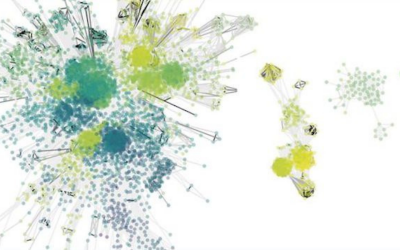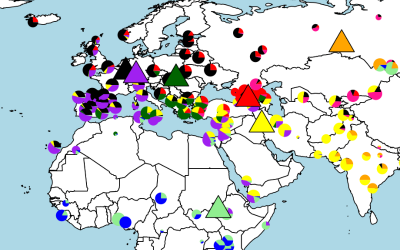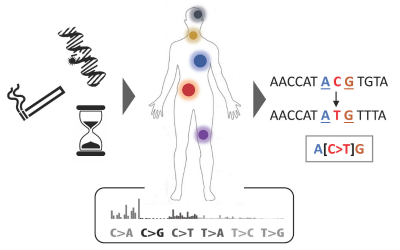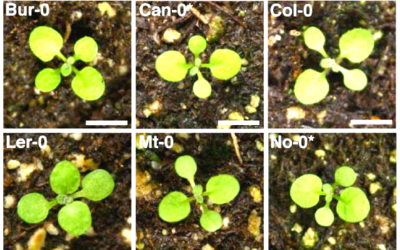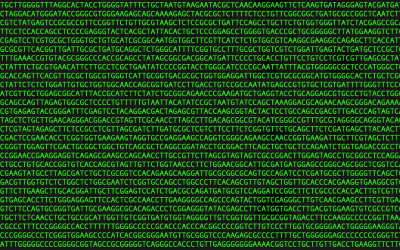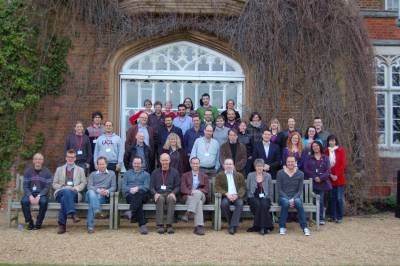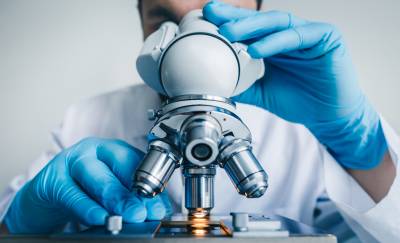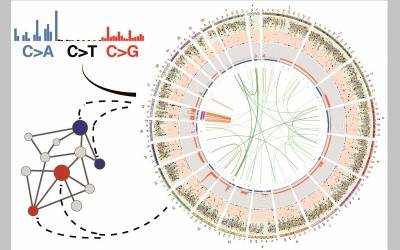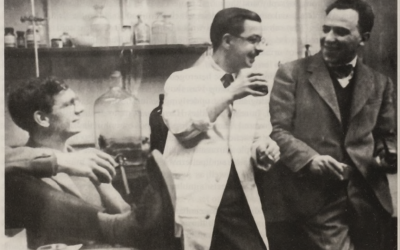Genetics of Human Disease MSc
| Programme Details | |
|---|---|
| Start Date | September, 2022 |
| Duration | 1 year Full Time |
| Location | UCL Bloomsbury |
Why study Genetics of Human Disease at UCL?
The UCL Division of Biosciences ranked 8th in the world in the 2022 QS World University Rankings.
- The programme is taught by members of the UCL Division of Biosciences. This research community has over 500 staff and 300 PhD students engaged in cutting edge research and collaboration.
- The size of the department means that our students are always taught by subject area experts, many of whom are research leaders in their fields.
- Being home to so many world leaders in biomedical sciences means we can offer more cutting edge modules to our students than many similar programmes.
UCL is in a unique position to offer both the basic science and application of modern genetics to improve human health. The programme is a cross-faculty initiative with teaching from across the School of Life and Medical Sciences (SLMS) at UCL. This allows us to offer a breadth of biological education unmatched in almost any other UK university.
Students will be based at the UCL Genetics Institute (UGI), a world-leading centre which develops and applies biostatistical and bioinformatic approaches to human and population genetics. Opportunities to conduct laboratory or computational-based research projects are available in the laboratories of world-leading geneticists affiliated to the UGI.
Students will join the research groups of world-leading geneticists and molecular biologists affiliated to UGI and other UCL research institutes and conduct computational and laboratory-based research projects.
- All students are able to join our popular Life Sciences Student Society. The society runs academic talks and events as well as social activities
- There is no better time than now to study human genetics. The completion of the Human Genome Project together with the technological progress are allowing scientists to gain a better understanding the genetic basis of health and disease. The skills you will gain during your study will open doors to jobs not only in academia but in a variety other job sectors.
Course Overview
The Genetics of Human Disease degree programme provides a thorough grounding in modern approaches to the understanding of the genetics of disease alongside the cutting-edge research methods and techniques used to advance our understanding of development of disease. Compulsory modules provide a broad coverage of the genetics of disease, research skills and social aspects, whilst specialised streams in Inherited Diseases, Pharmacogenetics and Computational Genomics, in which students can qualify, and the research project allow more in-depth analysis in areas of genetics.
In term two, students can choose to specialise in one of four areas: cardiovascular genetics, neurological genetics, anticancer personalised medicines or pharmacogenomics. Students will also begin an original research project part time in term two. The research project will be full time in term three.
The programme is suitable for students who wish to progress to a PhD in Genetics of Human Disease or related subjects, those who wish to employ bioinformatics for interpreting genetics data in academia or healthcare organisations and those who wish to enter employment at an advanced level in industry or the public sector in the field of human genetics.
Students develop their knowledge and understanding of genetics of human diseases through a combination of lectures, seminars, tutorials, presentations and journal clubs. Taught modules are assessed by written reports, oral presentations and coursework and/or unseen written examination. The research project is assessed by the dissertation and oral presentation.
A Postgraduate Diploma consisting of six modules (four compulsory modules in term one and two modules within the selected stream in term two) is offered, full-time nine months. A Postgraduate Certificate consisting of four compulsory modules in term one (60 credits) is offered, full-time three months.
Course Content
| Selection | Module | Title | Credit | Level |
|---|---|---|---|---|
| Compulsory | BIOL0021 | Advanced Human Genetics Leader: Professor Francois Balloux | 15 | A7P* |
| Compulsory | GENE0001 | Human Genetics: Core Skills Leader: Dr Elvira Mambetisaeva | 15 | A7P |
| Compulsory | GENE0006 | Understanding Bioinformatics Resources and Their Application Leader: Professor Ruth Lovering | 15 | A7P |
| Compulsory | GENE0014 | MSc Genetics of Human Disease Research Project Leader: Dr Elvira Mambetisaeva | 90 | A7P |
| Compulsory | IEHC0046 | Basic Statistics for Medical Sciences Leader: Professor Hynek Pikhart | 15 | A7P |
| Optional (set 1) Students will need to choose a minimum of 0 and maximum of 30 credits | GENE0002 | Genetics of Cardiovascular and Related Complex Diseases Leader: Dr Petros Syrris | 15 | |
| GENE0003 | Genetics of Neurological Disease Leader: Dr Kerri Kinghorn | 15 | ||
| BIOL0034 | Applications in Human Genetics Leader: Dr Garrett Hellenthal | 15 | ||
| Optional (set 2) Students will need to choose minimum of 0 and maximum of 30 credits | GENE0008 | Genomics and Drug Development Leader: Professor Aroon Hingorani | 15 | |
| PHAY0017 | Anticancer Personalised Medicines Leader: Dr Geoffrey Wells | 15 | ||
| PHAY0019 | Pharmacogenomics, Adverse Drug Reactions and Biomarkers Leader: Professor Michael Munday | 15 | ||
| Optional (set 3) Students will need to choose minimum of 0 and maximum of 30 credits | BIOL0034 | Applications in Human Genetics Leader: Dr Garrett Hellenthal | 15 | |
| GENE0005 | Advanced Computational Biology Leader: Dr Maria Secrier | 15 |
Note: All Term 1 modules are compulsory. Students should select one out of three streams to undertake in Term 2, alongside the project title. Students then should select two x15 credits modules within the stream of their choice.
*A7P = Post Graduate Level
Alumni Case Study
Name: Lauren Marks
Job title: Genomics Policy Support Officer
Current employer: NHS England & NHS Improvement
"My role as a Policy Support Officer stretches across the team in developing strategy and policy in relation to genomics and personalised medicine. This includes:
- Producing briefings, including parliamentary briefings and responding to parliamentary questions
- Supporting overall coordination of the NHS genomics programme
- Coordinating and leading work streams across the team including informatics, pharmacogenomics, patient choice (consent), test ordering, bioinformatics and test evaluation
- Stakeholder engagement with partner organisations, the NHS and patient groups"
Read more from Lauren.
Interested in Start-ups?
Many of our students are interested in start-ups, social enterprises and developing entrepreneurial skills. UCL's Innovation and Enterprise division offer training, start-up grants, competitions, communities and much more, all of which are free to students on this programme.
UCL's entrepreneurship community has supported over 300 UCL start-ups since 2010 and raised over £280 million in investment.
In addition to potentially starting a successful business, making use of the resources at UCL in this area provides students with the opportunity to develop business skills, chances to network in London's start up community and projects that will serve them well on their CVs as well as in future job interviews.
Careers
The MSc Genetics of Human Disease facilitates acquisition of knowledge and skills relevant to a career in research in many different biomedical disciplines. About half of our graduates enter a research career by undertaking and completing PhDs and working as research associates/scientists in academia. Some of our graduates go on to jobs in the pharmaceutical industry while others enter careers within clinical genetic diagnosis services, particularly in molecular genetics, and project management in healthcare organisations and hospitals around the world, medical communication and many other job sectors. Those graduates with a prior medical training often utilise their new skills as clinical geneticists.
Advanced training in genetic techniques including bioinformatics and statistical approaches positions graduates well for PhD studentships in research areas related to genetics. Another large group will seek jobs related to genetics in healthcare organisations and the pharmaceutical industry. The programme enhances student analytical and core skills enabling them to pursue jobs in project management, data analysis and science communication.
Useful Careers Resources:
My UCL Careers
UCL Neuroscience Careers Network
Innovation and Enterprise Training and Opportunities for Students
Professional Development Courses
Linked In Learning
Public Engagement Training
Public Policy Training
Find out More
For information on entry requirements, fees, how to apply and much more visit the MSc Genetics of Human Disease Prospectus Page.
 Close
Close


